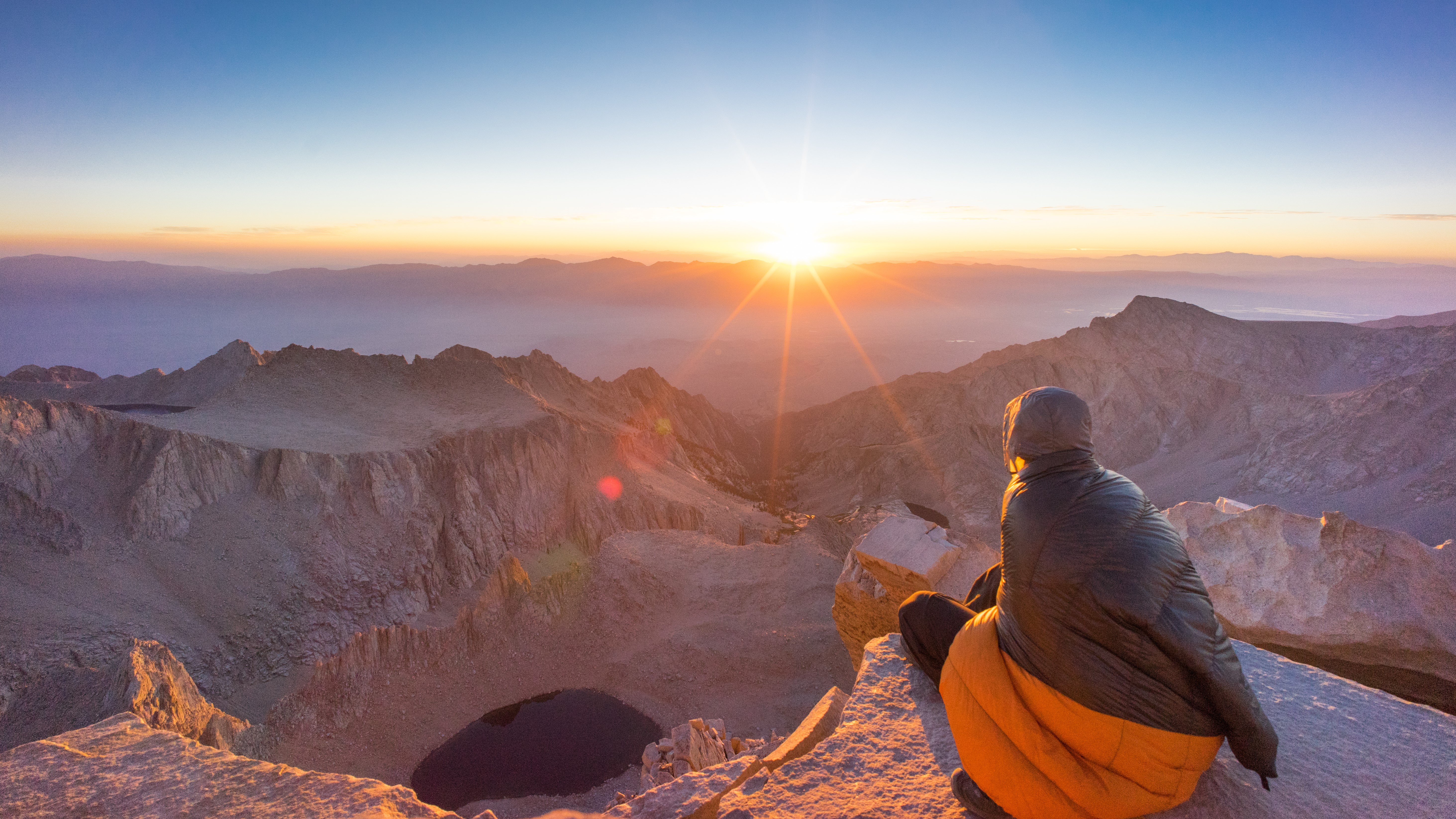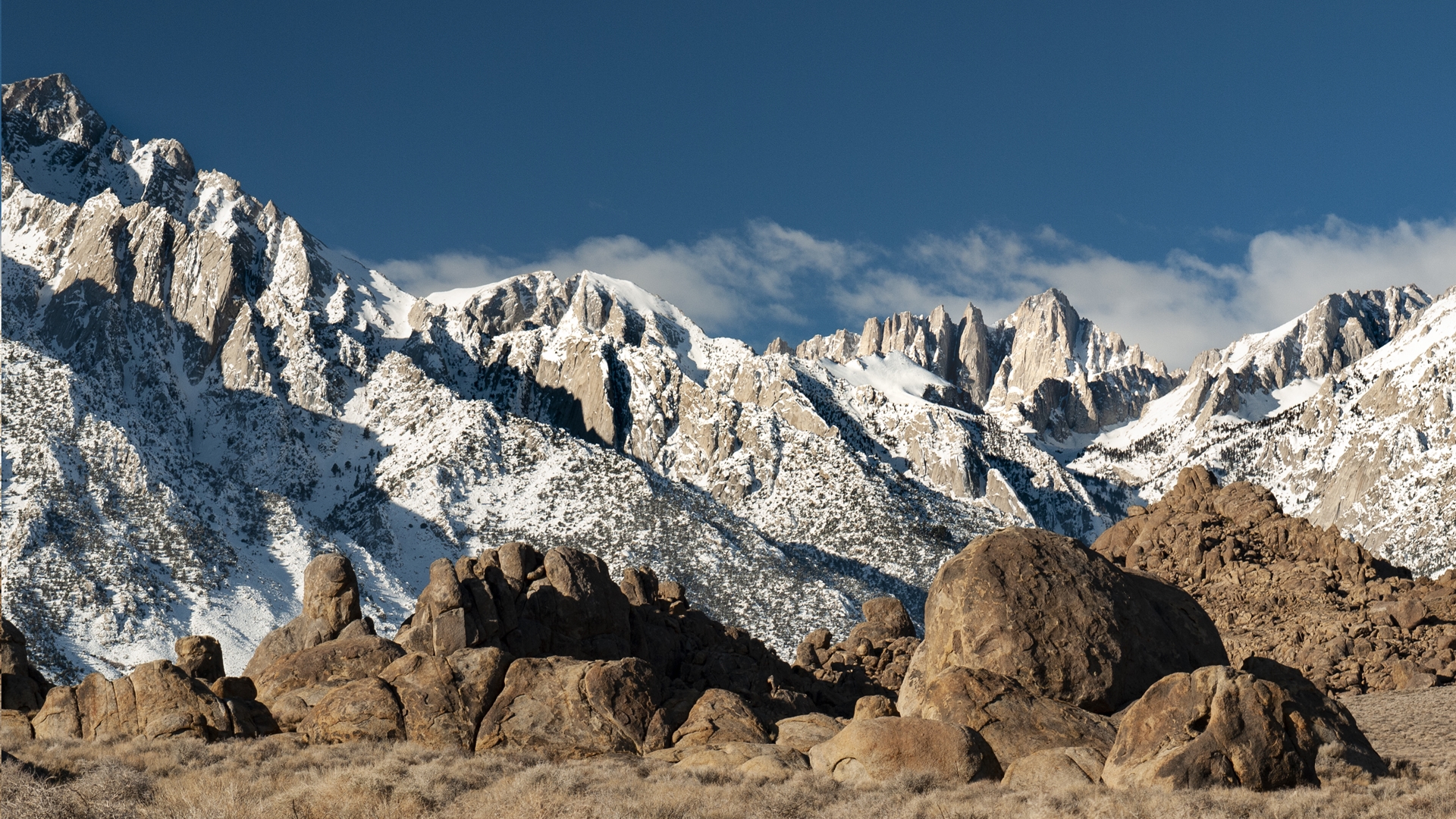
California mountain rescue crews issued an urgent warning to hikers this week after being called out to assist two unprepared hikers from Mount Whitney.
According to a Facebook post by Inyo County Search and Rescue, the pair started hiking the 14,505 ft peak at 6 p.m. on Friday, November 1. They had packed 150 lbs of newly purchased gear plus five gallons of water and planned to hike the three miles to Lone Pine Lake that night and summit the following day.
By 3 a.m., the hikers had made it 2.7 miles and were exhausted. According to ICSAR, one was suffering from two blisters and a bad headache, so they decided to stop and camp on the trail.
Upon waking, they discovered it was snowing and their shoes, which had been left outside the tent, had filled with snow. At this point, they decided to call for help, which they managed using the SOS function on their iPhone.
Rescuers reached the duo at around 1:40 p.m. and once the hikers' shoes were dry, they were able to hike out with assistance from the team and another hiker who helped carry their gear.

In this case, the hikers did several things right, including sticking together instead of splitting up and stopping when they felt exhausted rather than continuing on and making the rescue more complicated. They also carried a two-way communication device so they could call for help when they realized they were in trouble.
However, rescue teams also highlight some mistakes such as refusing help from other hikers, choosing to carry too much water instead of using a water filter and not hydrating adequately. Their lack of preparation and experience prompted ICSAR to remind all hikers of the risks associated with this hike.
"Summiting Mt. Whitney is a serious undertaking that requires research, training, proper gear, and experience. Hikers must have the humility and self-awareness to turn around when weather, personal fitness, or other factors make summiting unwise."
Rescue crews urge inexperienced or under-resourced hikers to hire a guide when tackling high-altitude peaks like Mt. Whitney, which is the highest mountain in the contiguous US and requires a 21-mile round trip trek with over 6,000 feet of elevation gain to reach the summit.
Hiking essentials
In addition to fitness, altitude acclimatization and experience, you should always carry the following gear for back country and high altitude hikes:
- A long-sleeved base layer, insulating layers such as fleece jackets or down jackets and a waterproof jacket with a hood.
- A hiking hat and gloves
- Hiking pants and rain pants to go over the top
- Quality hiking boots (if out in winter you will need specialized winter boots) and warm and breathable hiking socks
- Map, compass and GPS device
- First aid kit with an emergency blanket
- Headlamp
- Satellite communicator
- Trekking poles
- Water reservoir or hiking water bottle
- Plenty of food
- Sunglasses and sunscreen, even in winter
Learn more about this kit, and how to use it, in our article on hiking essentials.
California mountain rescue crews issued an urgent warning to hikers this week after being called out to assist two unprepared hikers from Mount Whitney.
According to a Facebook post by Inyo County Search and Rescue, the pair started hiking the 14,505 ft peak at 6 p.m. on Friday, November 1. They had packed 150 lbs of newly purchased gear plus five gallons of water and planned to hike the three miles to Lone Pine Lake that night and summit the following day.
By 3 a.m., the hikers had made it 2.7 miles and were exhausted. According to ICSAR, one was suffering from two blisters and a bad headache, so they decided to stop and camp on the trail.
Upon waking, they discovered it was snowing and their shoes, which had been left outside the tent, had filled with snow. At this point, they decided to call for help, which they managed using the SOS function on their iPhone.
Rescuers reached the duo at around 1:40 p.m. and once the hikers' shoes were dry, they were able to hike out with assistance from the team and another hiker who helped carry their gear.

In this case, the hikers did several things right, including sticking together instead of splitting up and stopping when they felt exhausted rather than continuing on and making the rescue more complicated. They also carried a two-way communication device so they could call for help when they realized they were in trouble.
However, rescue teams also highlight some mistakes such as refusing help from other hikers, choosing to carry too much water instead of using a water filter and not hydrating adequately. Their lack of preparation and experience prompted ICSAR to remind all hikers of the risks associated with this hike.
"Summiting Mt. Whitney is a serious undertaking that requires research, training, proper gear, and experience. Hikers must have the humility and self-awareness to turn around when weather, personal fitness, or other factors make summiting unwise."
Rescue crews urge inexperienced or under-resourced hikers to hire a guide when tackling high-altitude peaks like Mt. Whitney, which is the highest mountain in the contiguous US and requires a 21-mile round trip trek with over 6,000 feet of elevation gain to reach the summit.
Hiking essentials
In addition to fitness, altitude acclimatization and experience, you should always carry the following gear for back country and high altitude hikes:
- A long-sleeved base layer, insulating layers such as fleece jackets or down jackets and a waterproof jacket with a hood.
- A hiking hat and gloves
- Hiking pants and rain pants to go over the top
- Quality hiking boots (if out in winter you will need specialized winter boots) and warm and breathable hiking socks
- Map, compass and GPS device
- First aid kit with an emergency blanket
- Headlamp
- Satellite communicator
- Trekking poles
- Water reservoir or hiking water bottle
- Plenty of food
- Sunglasses and sunscreen, even in winter
Learn more about this kit, and how to use it, in our article on hiking essentials.







